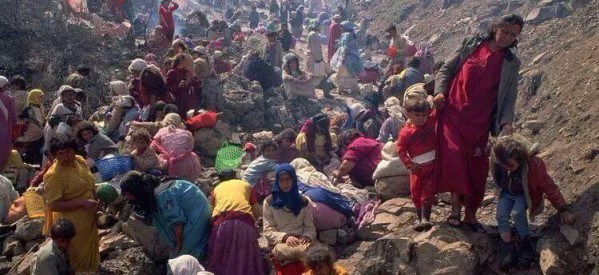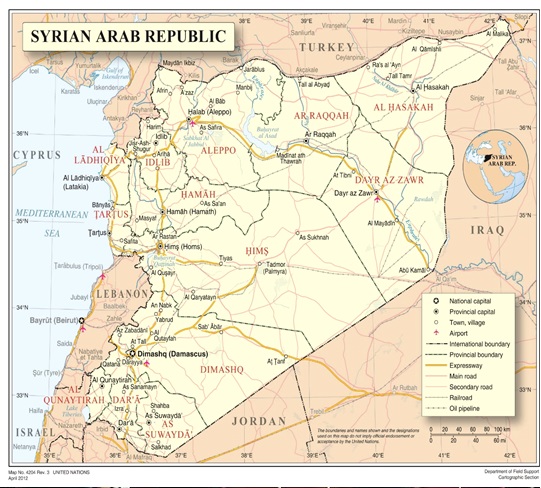Human Rights Council Forty-sixth session
22 February–19 March 2021 Agenda item 3
Promotion and protection of all human rights, civil, political, economic, social and cultural rights, including the right to development
A/HRC/46/NGO/50
Written statement* submitted by Maat for Peace, Development and Human Rights Association, a non- governmental organization in special consultative status
Preamble
Maat for Peace presents this intervention to identify the recent developments of the Yazidi minority in the Sinjar region in northern Iraq. Besides, it also serves as a response to Maat’s overwhelming concern over the genocide they are subjected to. If the status quo continued, it is very likely that the Yazidis would face complete extinction; as on the one hand, they are subjected to horrific massacres by the ISIS, and on the other hand, they are living under constant threat of the Turkish bombing. Moreover, many Yazidis who have survived the genocide are struggling with trauma and in critical need for psychological assistance and treatment.
The status quo in Sinjar, Iraq
In August 2014, the Islamic State (a.k.a. ISIS) unleashed a genocidal campaign in the Yazidi-majority district of Sinjar, Iraq. Targeting Yazidis, ISIS fighters destroyed villages, killed over 3,000 people, kidnapped over 6,400 more, enslaved women and children, subjecting them to torture and other abuses, including sexual abuse. These violent attacks caused a humanitarian crisis that ultimately resulted in over 200,000 people fleeing the area.
While ISIS was dislodged from Sinjar in 2017, the return of those who fled has been hindered by the district’s disputed status between the Government of Iraq (GOI) and the Kurdistan Regional Government (KRG). Returns have also been stymied by the presence of a myriad of armed actors with disparate chains of command, widespread contamination by explosive remnants of war (ERWs) and improvised explosive devices (IEDs), and the lack of local officials available to approve reconstruction and provide medical and educational services.
The region’s security landscape remains fragmented, in large part due to the presence of over ten different security actors operating in an area of approximately 2,000 square miles, each with competing goals and interests. Due to its strategic location bordering the Syrian Arab Republic and Turkey in northern Iraq, Sinjar is geopolitically important and vulnerable to external intervention. Turkey, for example, has launched airstrikes against groups affiliated with the People’s Protection Units of the Syrian Arab Repubic, which Turkey accuses of maintaining links to the Kurdistan Workers’ Party (PKK). These attacks have impacted civilians and their property in Sinjar, both deterring returns and undermining stability. After the KRG held a referendum on Kurdish independence in October 2017, the Peshmerga and other local officials affiliated with the main Kurdish political parties withdrew from Sinjar, leaving a vacuum that was filled by different Popular Mobilization Units (PMU). A new administration was appointed by the PMU in Sinjar city, but it lacks formal recognition by the GOI and Nineveh authorities. Since June 2020, the COVID-19 crisis and public-health related movement restrictions have exacerbated the already deteriorating conditions of internally displaced persons (IDPs) returning to Sinjar.
ISIS attacks on Yazidis in Sinjar, Iraq
On August 3 2014, the Islamic State in Iraq and the Levant (ISIL) launched a deadly offensive on Sinjar. ISIL overran Sinjar City and its surrounding areas and committed terrible atrocities against civilians including mass murder, forced religious conversions, abduction and enforced slavery of thousands, particularly of women and girls. Thousands fled the area and were displaced across Iraq, with some moving further abroad. The United Nations Human Rights Council has officially admitted that ISIL has committed war crimes and crimes against humanity in Sinjar and other parts of Iraq.
Six years on, up to 200,000 Yazidis are still displaced. Some are still facing harsh conditions on Mount Sinjar, where they fled to escape, while the majority live in camps for internally displaced persons in the Kurdistan Region of Iraq. Return to Sinjar has been slow since the officially declared cessation of the ISIL conflict in 2017, largely due to the level of destruction wrought in 2014. In addition to the human catastrophe, ISIL destroyed up to 80% of public infrastructure and 70% of civilian homes in Sinjar and surrounding areas, as well as many important religious sites.
According to the statistics of the Directorate of Yazidi Affairs of the Ministry of Endowment and Religious Affairs of the Kurdistan Regional Government, 1,280 Yazidis were killed, over 2,300 children were orphaned, and nearly 70 shrines were destroyed. In addition, over 6,400 Yazidis, mostly from women and girls, were abducted, 3,400 have been rescued or escaped. By the fall of ISIS in the Syrian Arab Republic, last March, dozens of Yazidi women, girls and boys have been freed from captivity, and they have been reunited with their families in Iraq, while the rest are still missing. Over 70 mass graves had been discovered in Sinjar.
Men were also forced to choose between converting to Islam or death. Children under seven years were sent to recruitment camps in the Syrian Arab Republic. They were indoctrinated with the ideology of “ISIS” and were forced to undergo military training. In addition to the above, the Yazidi community in Sinjar area is grappling with a severe and debilitating mental health crisis, including a high number of suicides and suicide attempts. In April 2019, 24 patients had attempted suicide, six of whom died before arrival at the hospital or could not be saved. 46 per cent of those patients were below the age of 18. The youngest, a 13-year-old girl who had hung herself, was dead on arrival at the emergency room, and 45 per cent were women or girls.
The Turkish air strikes impact on Yazidi civilians
Turkish support for the ISIS became increasingly clear when Turkey began attacking Sinjar and other Kurdish-controlled areas after the fall of ISIS in March 2019. Turkey attacked the Kurds directly and indirectly with the help of the pro-Turkish factions that are trying to control some areas in the Syrian Arab Republic and Iraq, they were accused of committing war crimes, especially in Afrin, where many Yazidis were subjected to brutal crimes. Turkey used the Kurdistan Democratic Party, and its diplomatic relations with Iraq and the United States of America to launch a direct attack on the Yazidi people’s defense units in Sinjar, along with their usual attacks on the PKK. In April 2017, Turkish planes bombed the Sinjar region for the first time, claiming the presence of PKK fighters in the area, killing five people and injuring nine others. Since then, Turkey’s attacks on Sinjar have become increasingly frequent.
Maat is gravely concerned over the Turkish Air Force regular air strikes on civilian populated areas in Sinjar, which terrorize populations, threaten their lives, and destroy their properties. Since 2018, Turkey has launched at least 16 air strikes on the Sinjar region, and on June 15, 2020, the Turkish Air Force launched several missiles at various locations in Mount Sinjar. According to local eyewitnesses, some rockets fell near the overpopulated Sardashti Camp for IDP.
Unfortunately, such air strikes have been regular since the collapse of the peace process between the PKK and Ankara, nearly five years ago.
Recommendations
Based on the aforementioned violations and the unimaginable massacres of the Yazidis in Iraq, Maat calls on the international community and the United Nations with its related bodies,
to protect the population of Sinjar against Turkish air strikes by establishing a no-fly zone over the city and pressuring the Turkish government to stop its air strikes against them;
to recognize the Autonomous Administration Council in Sinjar; to expedite the prosecution of the perpetrators, instigators and supporters of genocide, femicide and rape; and to provide material and financial support for the reconstruction of Sinjar.
The Iraqi government, in cooperation with the Kurdistan Regional Government, must take all necessary steps to alleviate the suffering of the people of Sinjar; remove all forms of bureaucratic obstacles to restarting public services; encourage government employees to return to their work and jobs; and accelerate the clearing of the area of explosive remnants of war and explosive devices. Maat also demands the relevant Iraqi authorities to achieve justice for the survivors and the families of the victims, by gathering evidence, bringing the perpetrators to trials, providing adequate compensation to the victims, and reaching a satisfactory solution guaranteeing the full rights of Yazidis.


